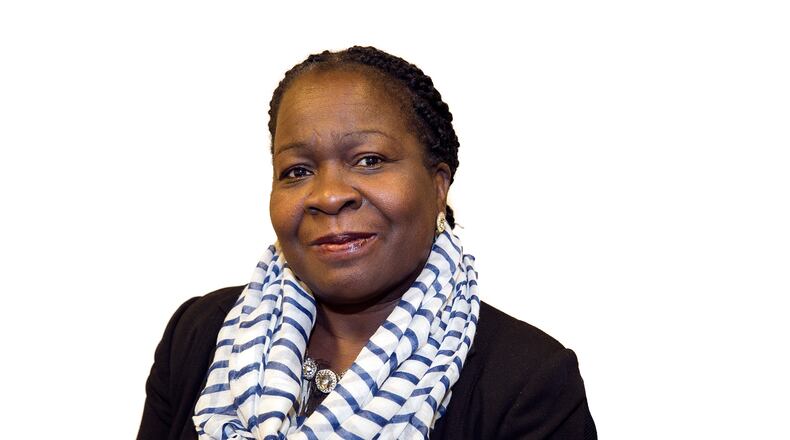And while the program on diabetes prevention and management scheduled for 11:30 a.m. to 1:30 p.m. Saturday at St. John’s Missionary Baptist Church is called “Food for the Soul,” its purpose is to save the bodies and souls of Black Springfielders, who lose more than twice as many years of potential life to the disease as their white counterparts.
Tellingly, the keynote speaker is a doctor, but not an M.D. of the kind that so often appears at Sisters United Functions.
Ingrid Adams is instead a Ph. D and a registered dietitian — an educator whose goal is to teach people with diabetes what they’re up against and coach them on the best strategies for improving the length and quality of their lives.
Adams’ award-winning program is called “Taking Ownership of Your Diabetes.”
That doesn’t mean she doesn’t support for efforts to remove race- and income-related barriers to care and access to nutritional food.
She does. And she encourages cooperative, interagency approaches like those being developed in Clark County as steps for developing the kind of “wraparound care” for people with chronic diseases that social service agencies have developed for children.
But Adams’ view is the key missing link in many communities is the absence of a dietitian, who can do what many primary care doctors don’t have the time to do in 15-minute appointments.
“I start by getting the individual to have a clear concept of what the disease state is,” she said. Given the damage diabetes can do, “that’s a motivation.”
But Adams said that is not enough.
“I make sure that the individual (also) understands … the rationale for why you should take a particular approach” in fighting it.
And that calls for clear messaging of the sort dietitians have developed for explaining the essentials of a healthy diet for those with Type 2 diabetes by serving it up on a plate.
Says Adams: “Fill half your plate with non-starch vegetables, a salad some steamed vegetables ---carrots, cauliflower, broccoli.”
“Then the other half of the plate, you divide it in half.”
Into one half should go lean complex carbohydrates and whole grains. And preference should be given, for instance, to real mashed potatoes over powdered ones sold in a box.
She said the final quarter of the plate is reserved “for foods they like and that fit their cultural traditions,” she said.
Adams said patients need to understand every bit as clearly what an A1C test measures and the dangers chronically high A1C and blood pressure readings. The purpose of this is to see the reason for making regular appointments for continuing care.
And like the treatment, the education plan should be tailored to the individual patient.
“Prevention is always the area I like to focus my effort,” she said.
Because of that, those who can manage to avoid diabetes might be advised to focus on diet and exercise alone.
On the other hand, those whose diabetes is more serious must focus on managing the diabetes they have.
“Different factors govern our lives.”
One constant, though, is the challenge involved in changing our habits, even for the better, something every dieter is aware of.
“It’s difficult when we think about it,” Adams said. “People have lived that way all their lives. It has become a routine.”
But while it’s hard to break even a bad habit, she said, the good news is this: “With a team effort, it’s quite possible.”
The team of sponsors for the event is Sisters United for Prevention, Central State University, the Springfield Chapter of the National Council of Negro Women and H.E.A.L. (Healthy Eating, Active Living) Their common goal is “Improving minority health …through advocacy, empowerment and celebration.”
How to go:
What: Food for the Soul
When: 11:30 a.m.-1:30 p.m. Saturday, St.John’s Missionary Baptist Church, Springfield.
Keynote Speaker: Ingrid Adams, Ph.D., of OSU
Emcee: Marsha Bonhart
Cost: $35, which includes lunch and a local cookbook
Reservations: Call Sisters United, 937 324-4301
About the Author
